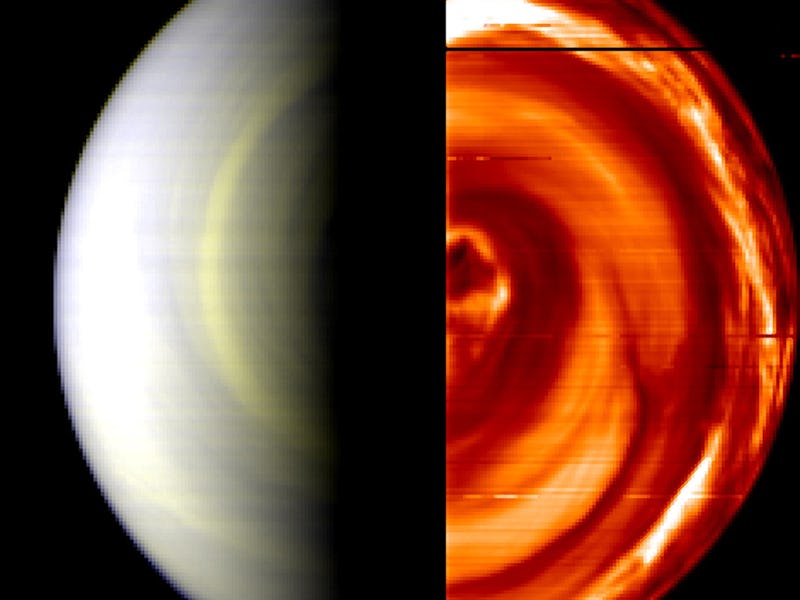The Powerful Winds of Venus Literally Sucked Its Oceans Into Space
A new study reveals 'electric winds' five times stronger than anything we have on Earth.

While there were once oceans on Venus, a mysterious force stripped them away – but what? The answer, it turns out, is an unexpectedly powerful “electric wind.”
Scientists from NASA and University College London published a study today in Geophysical Research Letters demonstrating that the planet’s electric winds are strong enough to literally suck the oxygen molecules out of the oceans and into space. When the sunlight hits them in space, they’re broken down further and simply carried away.
Since Venus is the most Earth-like of the planets in our solar system, anything that helps us better understand its atmospheric evolution is always of keen interest to scientists. According to UCL, every planet with an atmosphere is expected to have at least a weak electric field, but no one was really prepared for just how aggressive and powerful the electric winds of Venus were just revealed to be.
“We’ve been studying the electrons flowing away from Titan and Mars as well as from Venus, and the ions they drag away to space to be lost forever,” said co-author and electron spectrometer team leader Professor Andrew Coates of the UCL MSSL in a press release. “We found that over 100 metric tons per year escapes from Venus by this mechanism — significant over billions of years. The new result here is that the electric field powering this escape is surprisingly strong at Venus compared to the other objects. This will help us understand how this universal process works.”
Prior to the discovery, scientists theorized that solar winds were responsible for the erosion of Venus’s oxygen molecules and the resulting desiccation of its oceans. (A similar phenomenon has taken place on Mars.) The electric fields are at least five times more powerful than anything that exists on Earth.
Artist rendering of solar winds stripping Mars's atmosphere
“We don’t really know why it is so much stronger at Venus than Earth,” said Glyn Collinson, previously at UCL Mullard Space Science Laboratory and now a scientist at NASA’s Goddard Space Flight Center, in the UCL press release. “But, we think it might have something to do with Venus being closer to the Sun, and the ultraviolet sunlight being twice as bright. It’s a really challenging thing to measure and to date all we have are upper limits on how strong it might be here.”